How Long Does Herbal Tea Last (Know Your Tea's Shelf Life)
As tea lovers, we all appreciate the soothing comfort of a warm cup of tea. Whether it's green tea, chamomile tea, or a delightful herbal blend, tea is not just a beverage; it's a moment of relaxation and joy. But have you ever wondered, "How long does herbal tea last?"
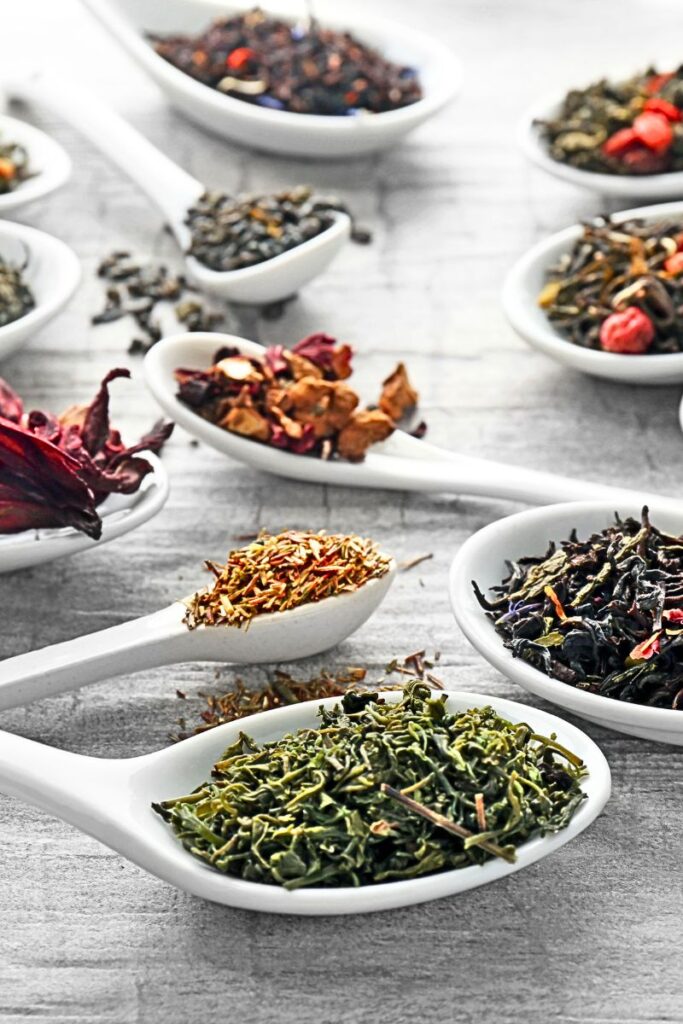
This post may include affiliate links. Please refer to our disclaimer for full disclaimer.
We all want our tea to taste fresh and flavorful, as well as reap the full health benefits of each herb, so understanding the shelf life of different types of tea and how to store them properly is essential.
In this blog post, we'll explore the fascinating world of tea shelf life, share tips on proper storage techniques, and help you enjoy your favorite brews at their best.
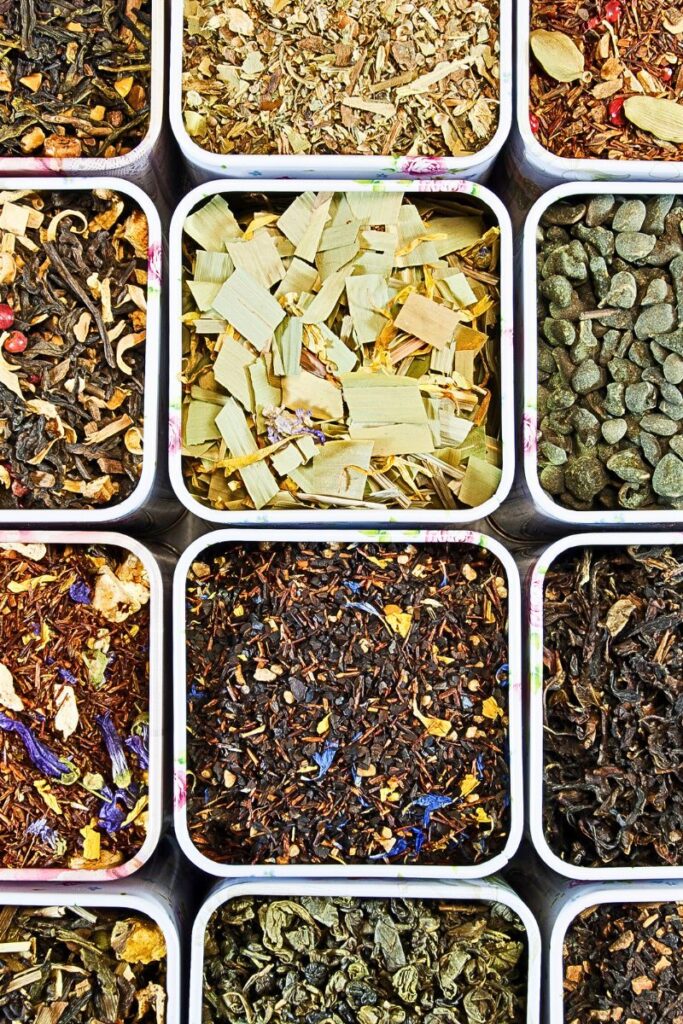
What Factors Affect the Shelf Life of Tea?
Before we delve into the shelf life of different tea types, let's discuss the factors that can influence how long your tea stays fresh:
- Type of Tea: There are various types of tea, including herbal, black, green, white, oolong, and pu-erh teas, each with its own unique characteristics and shelf life.
- Storage Conditions: Proper storage is crucial for maintaining the flavor and quality of your tea. Factors such as temperature, humidity, and exposure to air and light can all impact tea's shelf life.
- Packaging: The type of packaging your tea comes in also plays a role in its longevity. Tea leaves or bags that are stored in airtight containers tend to last longer than those in loosely sealed or open packaging.
- Tea Form: Loose-leaf tea generally has a longer shelf life than tea bags, as it contains larger, whole leaves that retain their flavor for a more extended period.
- Exposure to Odors: Tea leaves can absorb odors from their surroundings, affecting their taste. Proper storage away from strong-smelling substances is essential.
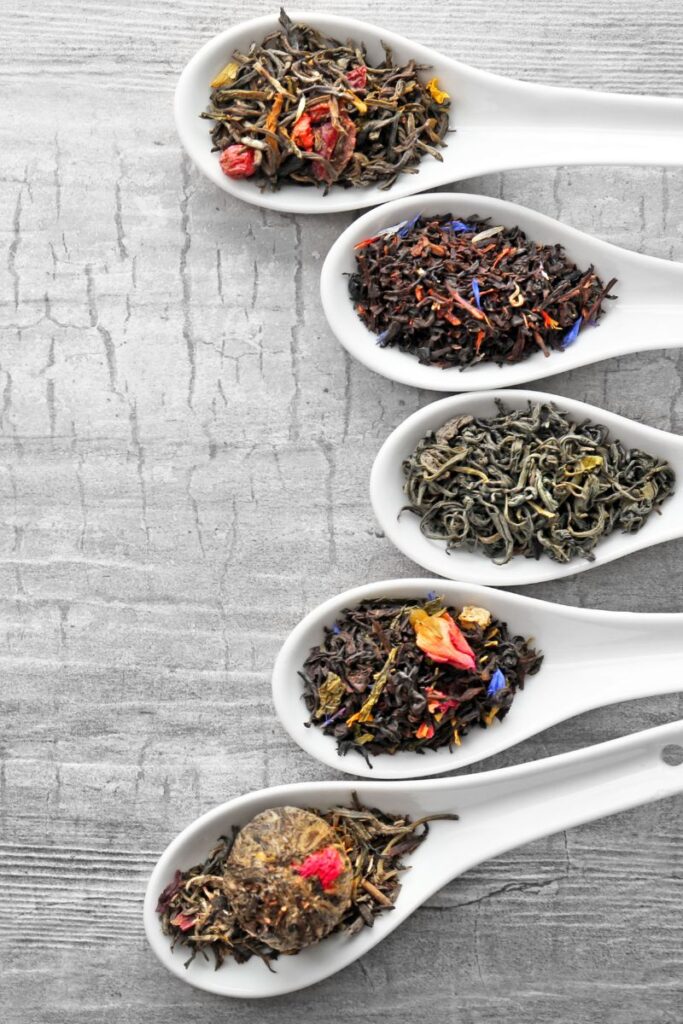
Now, let's dive into the shelf life of different tea types and explore how you can extend the freshness of your favorite brews.
Herbal Tea Shelf Life (How Long Does Herbal Tea Last?)
Herbal teas, just like their traditional counterparts, require proper storage to maintain their freshness and flavor. To prolong the shelf life of herbal teas, store them in an airtight container in a cool and dry place, away from direct sunlight and heat sources. Unlike teas made from Camellia sinensis, herbal teas are often made from a blend of dried leaves, flowers, fruits, and herbs, which can be more delicate and susceptible to flavor degradation. When stored correctly, most herbal teas can retain their best flavor for about 1 to 2 years.
However, to fully savor their rich and aromatic taste, it is advisable to consume them within the first 12 months. As time passes, herbal teas may gradually lose some of their potency, so for the most enjoyable tea-drinking experience, it's best to use them relatively soon after purchase. By following these simple storage guidelines, you can ensure that your herbal teas stay fresh and flavorful, providing you with a delightful and soothing cup of tea whenever you desire.
Green Tea Shelf Life
Green tea is celebrated for its delicate and refreshing flavor. To keep it fresh, store your green tea in an airtight container away from direct sunlight and heat sources. When stored properly, green tea leaves can retain their original flavor for about 6 to 12 months. However, for the best flavor, it's recommended to consume it within the first six months.
White Tea Shelf Life
White tea is prized for its subtle, sweet taste and high antioxidant content. Similar to green tea, it's best to store white tea in a cool, dry place away from strong odors. When stored correctly, white tea can maintain its quality for up to 12 to 24 months.
Oolong Tea Shelf Life
Oolong tea offers a delightful balance between the floral notes of green tea and the robustness of black tea. To preserve its unique taste, store oolong tea in a sealed container in a dark and cool place. Properly stored, oolong tea can last for about 12 to 24 months.
Pu-erh Tea Shelf Life
Pu-erh tea is known for its fermented and earthy flavor, which improves with age. If you have raw pu-erh, it can continue to age and develop its taste for several years or even decades if stored correctly. However, ripe pu-erh has a shorter shelf life and is best consumed within 1 to 3 years.
How to Properly Store Your Tea
To maximize the shelf life of your tea and ensure it retains its best flavor, follow these storage tips:
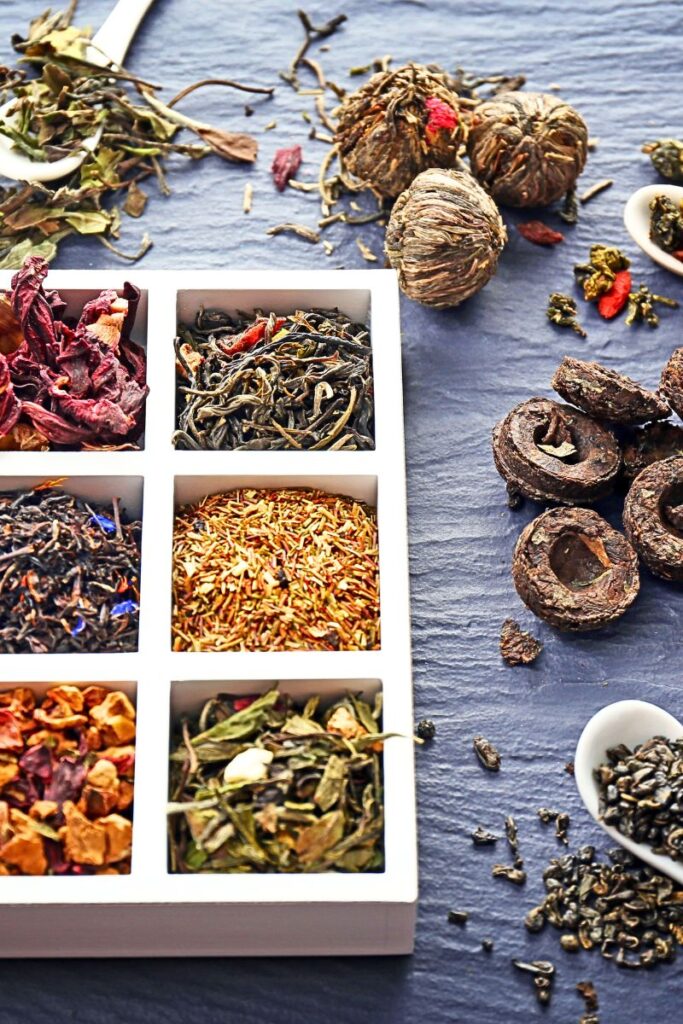
1. Choose the Right Storage Container
Invest in airtight containers made of glass or other non-reactive materials to keep your tea fresh.
I like using sealed, brown paper bags as these will not increase moisture in the area or absorb odors. Avoid using plastic containers, as they can absorb and impart unwanted odors to the tea.
2. Keep Tea Away from Light
Exposure to direct sunlight can degrade the quality of your tea, leading to a loss of flavor and aroma. Store your tea in a dark place or opaque containers to shield it from light.
3. Avoid Heat and Temperature Fluctuations
Heat and temperature fluctuations can cause your tea leaves to deteriorate quickly. Keep your tea away from heat sources like stoves, ovens, or appliances that generate warmth.
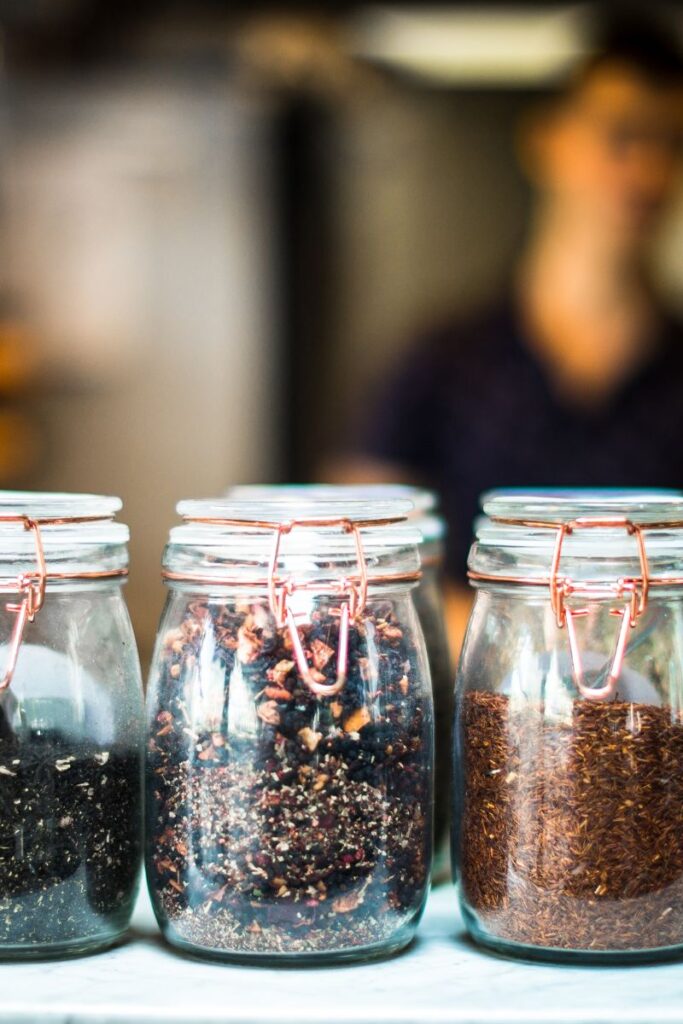
4. Minimize Exposure to Air
Air can also impact the freshness of your tea. When you open a tea package, transfer the contents to an airtight container to prevent exposure to excess air.
5. Store in Smaller Quantities
Instead of storing large amounts of tea, consider buying in smaller quantities to ensure you consume it while it's still fresh.
6. Separate Different Tea Types
To prevent the mingling of flavors, store different types of tea in separate containers. Green tea might not pair well with strong-smelling herbal teas, so it's best to keep them apart.
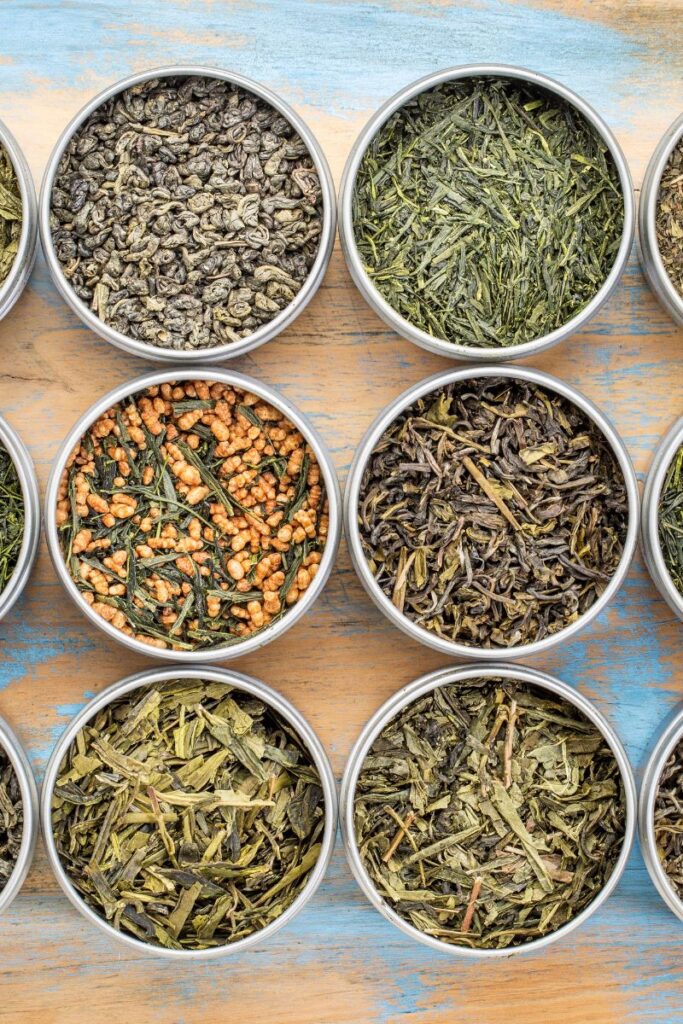
7. Check the Expiry Date
Always check the best-by date or expiry date on the tea package. While tea can often remain drinkable beyond this date, it's an essential reference for understanding its potential freshness.
How to Tell If Your Tea Has Expired
Tea doesn't typically spoil or become harmful to consume after its shelf life has passed. However, it might lose its original flavor and quality, resulting in a less enjoyable cup of tea. Here are some signs that your tea may have expired:
- Foul Smell: Expired tea leaves may develop a musty or stale smell, indicating a loss of freshness. It also just might not smell like anything, indicating the tea has lost potency.
- Bad Taste: Over time, tea leaves can lose their natural oils, leading to a decline in taste and a potentially bitter or flat flavor.
- Change in Color: If your tea leaves or tea bags have changed color significantly, it could be a sign of deterioration.
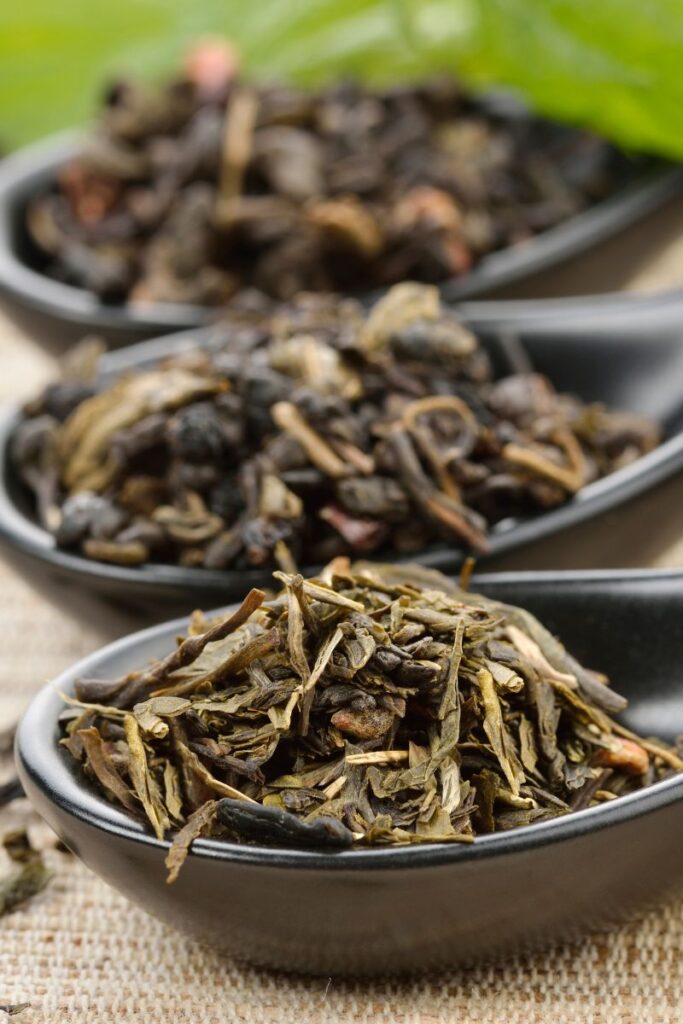
Conclusion
Understanding the shelf life of different teas and proper storage techniques is the key to enjoying the best flavors in your cup of tea. Green tea, white tea, oolong tea, pu-erh tea, and herbal teas each have their unique qualities and potential health benefits.
By storing your tea in airtight containers, away from light, heat, and humidity, you can extend its freshness and savor the delightful taste of your favorite brews for a more extended period.
So, why not treat yourself to a comforting cup of tea today and celebrate the art of sipping this age-old and refreshing drink!

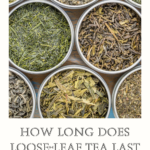


[…] If you want to learn more about the various shelf lives of each tea, check out this article. […]